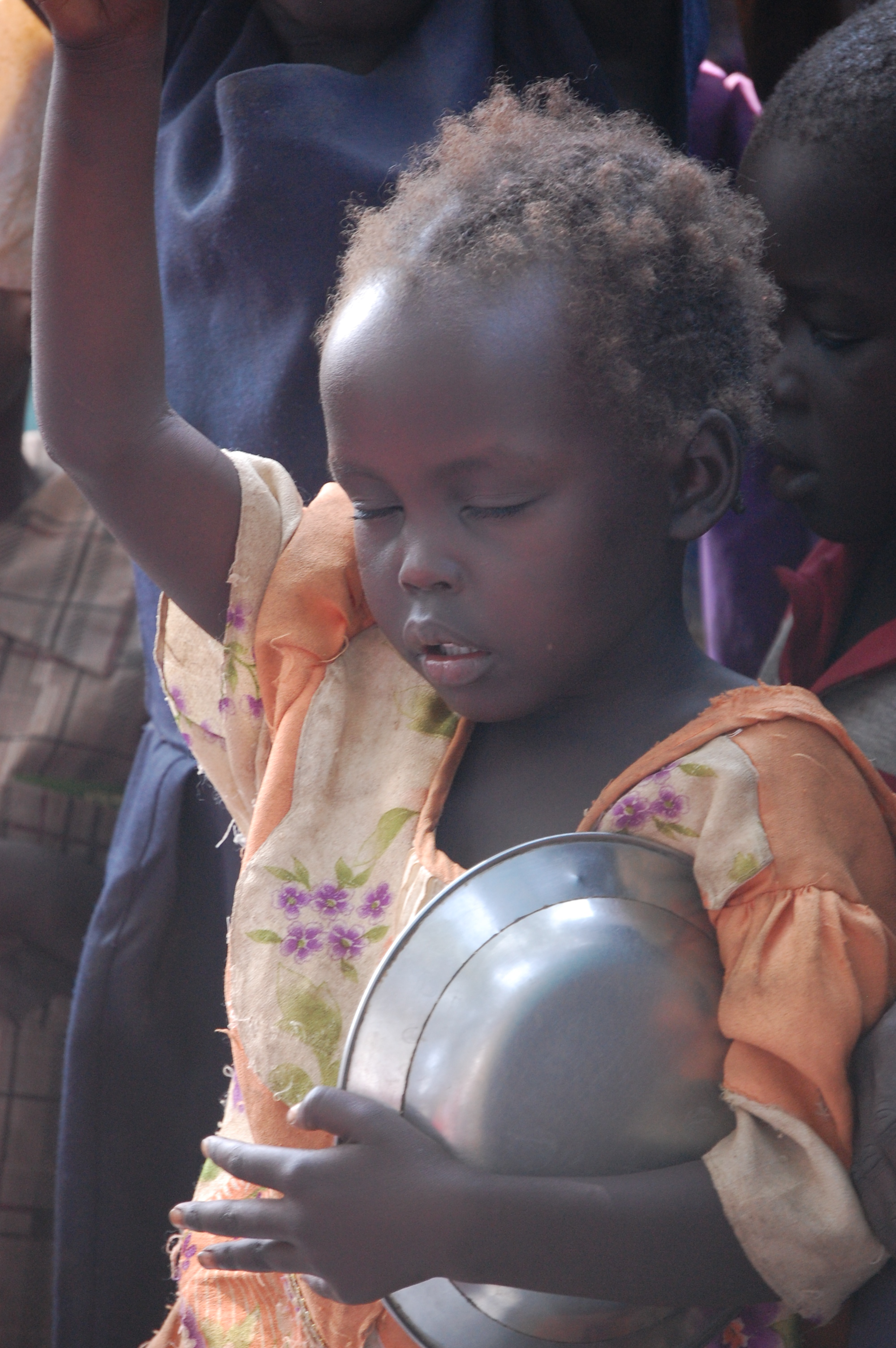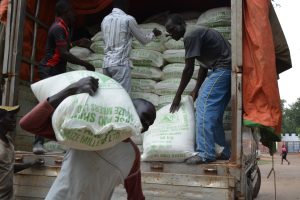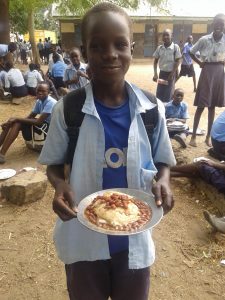
FRM Newsletter
April 2017: Ghost City: Home of the Dead
View the full April 2017 Newsletter here.
In 2011, South Sudan was born amidst great prosperity and hope. Given the distinction of being the youngest nation in our world, the oil-rich land transformed poverty into a bright and booming democracy, almost overnight. Each time I visited the capital city of Juba, I saw new businesses, shops, and improvements. Local and international news channels reported South Sudan to be the
only nation in the history of the world to be born with enough money to develop itself. Nearly 50 years of war and oppression vanished. Vendors from neighboring countries and entrepreneurs made money hand over fist. Economic demand was high and for the first time citizens had disposable income. Now, families had money to spend on necessities, as well as luxuries. People were eating out; cafes and hotels popped up on every corner.

When the civil war broke out in 1983, Juba fell into the control of the Islamic Regime in Khartoum—they did nothing to develop the city. There were no paved roads, no new government offices, dilapidated schools and even the university was allowed to fall into disrepair.
With the birth of the newest nation, the emerging Sudan People’s Liberation Movement (SPLM) party started at ground zero and succeeded. They were granted funds to pave the Pan-African highway from Nimule, the border of Uganda, to the capital city of Juba. Key positions within the SPLM included new vehicles, mostly Toyota Land Cruisers and trucks. Non-Governmental Organizations (NGO’s) transferred their in-country headquarters to the heart of Juba, flooding the streets with even more new vehicles. Private enterprise flourished, bicycles were cast off for new vehicles, markets offered an overabundance of wares. Dreams were coming true and Sudanese with real educations returned from Africa, the USA, and Europe to their homeland to fill positions within the government. The sky was the limit and memories of suffering were fading. Then, war returned…
Inflation skyrocketed, plunging the economy into depression. The price of oil plummeted and rumors and fear gripped hearts. The capital went from being flooded with people, bustling with activity to a ghost town. Now, as you drive through the capital, no construction is going ahead, most shops are closed, markets are sparsely stocked, and petrol shortages create queues that last two to three days for just 20 liters (approximately 5 gallons) per vehicle, making the streets seem empty.
A nation birthed in hope, spiraled downward in great despair. Floods of terrified South Sudanese were left to seek refuge in Uganda or Kenya. The drought crippled food stores and the hyperinflation left most people desperate for daily necessities. Driven by hunger and survival, criminals began exploiting civilians nationwide. Within 20 miles of our chaplaincy base, we planted three thriving Calvary Chapel churches. These three villages experienced a mass exodus of people, leaving them virtual ghost towns, not a single person remains. Fear gripped the nation due to rebel soldiers and criminals targeting innocent civilians. The death toll rises daily, from this senseless violence.
Panic compels refuge seekers to pay premium prices for any mode of transportation to leave South Sudan. For months, there have been a steady flow of refugees exiting the country. The refugee camps, with explosive population, has led to food shortages and more hardship. Conditions are bleak. I’ve been told that, although refugees were forced from their homes and left with only the clothes on their backs, the majority are grateful to be alive and safe from rebels. In spite of all the hardship, it has once again given us great opportunity to share the Gospel.
In our village, we have lost over half the population. We wanted to help the community in a practical way. Because children are the most vulnerable, we contacted the primary schools in our area, registered each child and we are now feeding 6,600 kids daily lunches. Our chaplains visit the schools and teach Bible study lessons, so the children know that the food they are being provided with comes from Jesus. Now, parents no longer need to force their children to help them search for food. In South Sudan, people generally eat only once or twice a day. So, we are providing a large lunch for each of the children of beans and corn maize, (which is comparable to America’s standard meal of meat and potatoes). We feed the children a late lunch so they feel full and don’t go to bed hungry. The parents provide bread and tea in the morning so that the children do not go to school on an empty stomach.
Sadly, the fo od instability will not improve itself for a long time. We want to work with local farms to help them prosper, while we support the schools. One of the most difficult farming problems is the threat of rebel attacks in the areas where the ground is most fertile. It’s common for rebels to steal any food that they can carry, then to set the fields on fire, inflicting maximum suffering. My hope is to purchase two drones to fly around our village at night that have thermal imaging. These will not be military grade, as those are millions of dollars, but ours will probably cost about $10,000 each. At least we will be able to see if the enemy is coming and alert the village in case they attack. I will coordinate with our local garrison if we see the enemy is approaching, so we can be prepared should they come.
od instability will not improve itself for a long time. We want to work with local farms to help them prosper, while we support the schools. One of the most difficult farming problems is the threat of rebel attacks in the areas where the ground is most fertile. It’s common for rebels to steal any food that they can carry, then to set the fields on fire, inflicting maximum suffering. My hope is to purchase two drones to fly around our village at night that have thermal imaging. These will not be military grade, as those are millions of dollars, but ours will probably cost about $10,000 each. At least we will be able to see if the enemy is coming and alert the village in case they attack. I will coordinate with our local garrison if we see the enemy is approaching, so we can be prepared should they come.
In addition to helping with the food crisis, we feel led to continue sending medical supplies into the Nuba Mountains. Please pray as w e organize another ten metric tons of medicine to be delivered no later than April. Thanks to all of your prayers and generosity, we’ve sent 27 metric tons so far, at a cost of about $300,000. Jesus spoke about giving to our neighbors in need, and
e organize another ten metric tons of medicine to be delivered no later than April. Thanks to all of your prayers and generosity, we’ve sent 27 metric tons so far, at a cost of about $300,000. Jesus spoke about giving to our neighbors in need, and
I can testify that each step taken to show love to the hurting saints and lost souls, God has given back to allow Far Reaching Ministries (FRM) to expand our reach. Taking these actions may seem a little extreme to some, but the situation is life or death to Southern Sudanese. When you have seen with your own eyes the brutality against women and children, the extent of trauma is hard to fathom. Rape, torture and merciless violence destroy whole communities and breed enmity. I cannot, in good conscience, allow this to happen while FRM has the ability to intervene.
Michael, our senior chaplain, said that a father moved throughout our city from morning ‘til dusk trying to get the equivalent of $2.50 to feed his family and failed. He felt hopeless and heart sick, but when he came home, his son had brought home ten pounds of porridge, salt, sugar and oil that FRM had provided for each local child. This man broke down and gave thanks to God for this gift. One mother gave thanks to God for the food, divided it, and gave half to another family who also had no food. It’s hard to imagine that she would be so kind when this was all the food the family had—this is what happens when you train people in God’s Word.
While the effort to feed so many will be costly, I believe that it is the heart of God to care for those that cannot care for themselves. The U.N. is warning that famine and death will come to South Sudan this year in great numbers. Many are saying that this declaration is too late. The very hard truth is that many of these thriving villages and cities have become ghost towns and are now only home to the dead. But we will fight to save as many as we can.
In the Lamb,
Wes Bentley
Far Reaching Ministries